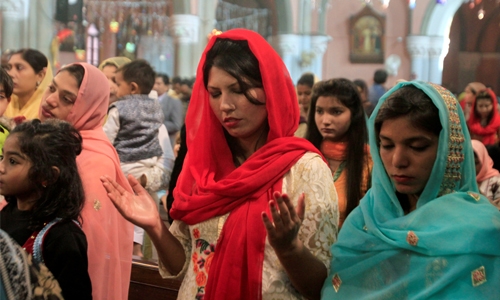How caste underpins the blasphemy crisis?
On June 14, 2009, Asia Bibi, a poor Christian woman, was picking fruit in the field of Itan Wali village in Pakistan, about 30 miles from the city of Lahore. On the landowner’s order, Bibi fetched drinking water for her co-workers, but three Muslim women among them accused her of contaminating the water by touching the bowl. An argument followed. Later, the Muslim women accused Bibi of making blasphemous statements against Islam — a charge punishable by death under Pakistani law.
Despite little evidence, Bibi spent nine years in prison — eight in solitary confinement on death row — till she was finally acquitted by the Supreme Court of Pakistan in late October. Pakistan’s religious right has violently protested her acquittal and Bibi is being held in an undisclosed location to keep her safe. The initial accusation against her was not about religion but caste. Her handling of a drinking vessel was seen to pollute the water inside because she belonged to an “untouchable” Hindu caste that had converted to Christianity.
When this offence turned into the charge of blasphemy, the shift signalled the simultaneous disavowal and internalisation of caste discrimination by Muslims who otherwise attribute the practice to Hindus in India. Caste discrimination in Pakistan often involves its non-Muslim population and its Hindu past. When Pakistan was created after the partition of colonial India, upper-caste Hindus and Sikhs fled or were forced to leave for India, leaving their poorer and less mobile lower-caste coreligionists behind. In the southern province of Sindh, some upper-caste landowners stayed, while low-caste Hindus took the religion, its temples and practices into their hands in a startling departure from Hindu tradition that has no Indian counterpart.
In Punjab Province, former “untouchables” accelerated their conversion to Christianity, taking given names common among their Muslim neighbours while replacing the caste surnames with appellations like “Masih,” the Urdu word for Jesus in his role as Messiah. It is now Muslims, especially in Punjab, who maintain a caste hierarchy. And since Islamic beliefs don’t include a caste system, the discrimination cannot be defined in terms of caste and is labelled religious. This shift was illustrated by turning Bibi’s quarrel over sharing water into blasphemy. Perhaps, Bibi mentioned to her three accusers how Islam did not permit such discrimination.
But in Pakistan, neither the Christians, who are understood to have been low-caste Hindus, nor the Muslims, who have adopted the role of their high-caste coreligionists, can refer to the vanished past that mediates their relations. The increasing refusal of Muslims to share water or food with Christians suggests an inability to come to terms with a past that defies the religious identifications meant to structure all of Pakistan’s social relations. In post-colonial India and Pakistan, religious offence among Hindus, Muslims, Sikhs and Christians continues to deploy the secular language of hurt sentiments rather than the theological category of blasphemy.
Bibi’s case is resolutely local and has led to no Muslim agitation outside Pakistan. This is because it emerges from the Muslim disavowal of caste. In Pakistan, both the discrimination of caste and the history of religious difference are officially proscribed and forgotten. But for this very reason they continue to haunt the present in disavowed ways that include the charge of blasphemy against Bibi.
Related Posts

